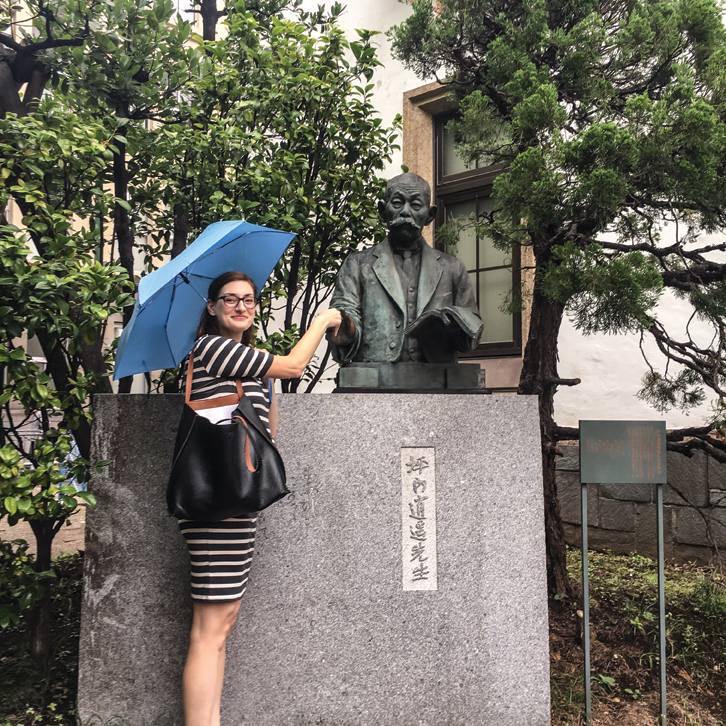
As Trinity’s international student adviser, Katharine “Katie” Clair serves as adviser, advocate, counselor, and connector for students who have journeyed from around the world to study at the College. She helps students negotiate the myriad challenges of study in the United States, from completing the necessary government paperwork to navigating the idiosyncrasies of an educational system that is oftentimes markedly different from their own. This transition can be particularly difficult for Asian students, whose culture and educational system are quite different from those in the United States and Europe. Thus, Clair was thrilled when she learned that she had been awarded one of just 10 places in the prestigious Fulbright United States-Japan International Education Administrator (IEA) Program that took place June 12-24 of this year.
Clair has extensive experience in Europe but said that her depth of knowledge in Asia was markedly less, possibly hampering her ability to assist students from this part of the world. “Japan is a high-context culture, and you really need to experience it firsthand to understand it. Spending time in the country helped me not only to understand Japanese students better but also to gain insights into their culture and educational system so that I can better help them adjust to life on an American campus.”
The importance of understanding the challenges that Asian students face is doubly pressing for Clair in light of Trinity’s newly established exchange partnership with Rikkyo University, a liberal arts college in Tokyo. As a result, she was particularly enthusiastic about the IEA agenda, which offered visits to local colleges and universities in Japan, meetings with students, and conversations with Japanese government officials in higher education. “It was incredibly valuable for me to meet my counterparts from Rikkyo, see the environment our exchange students will be coming from, and familiarize myself with the resources available to them in Japan versus here,” she said.